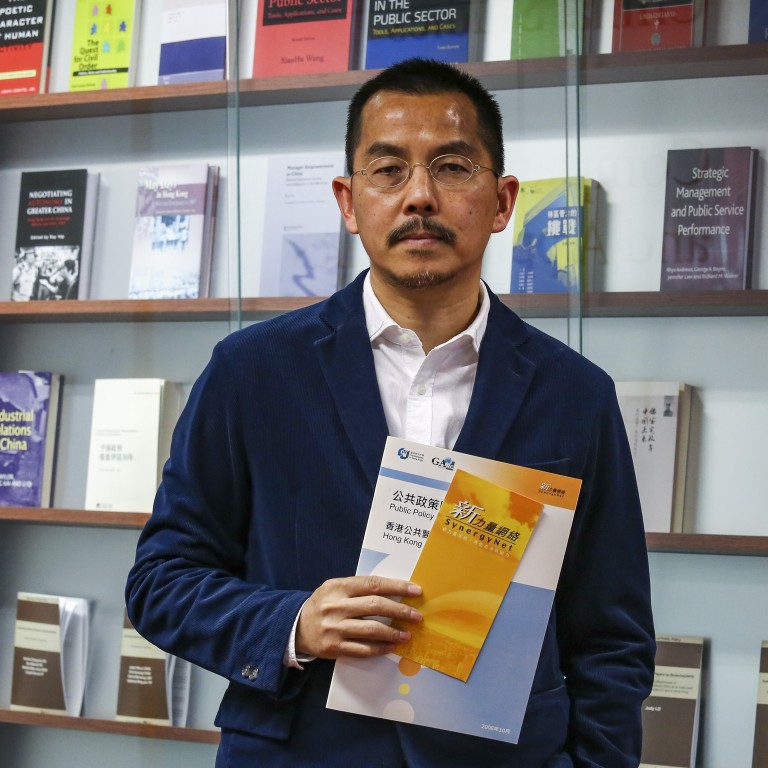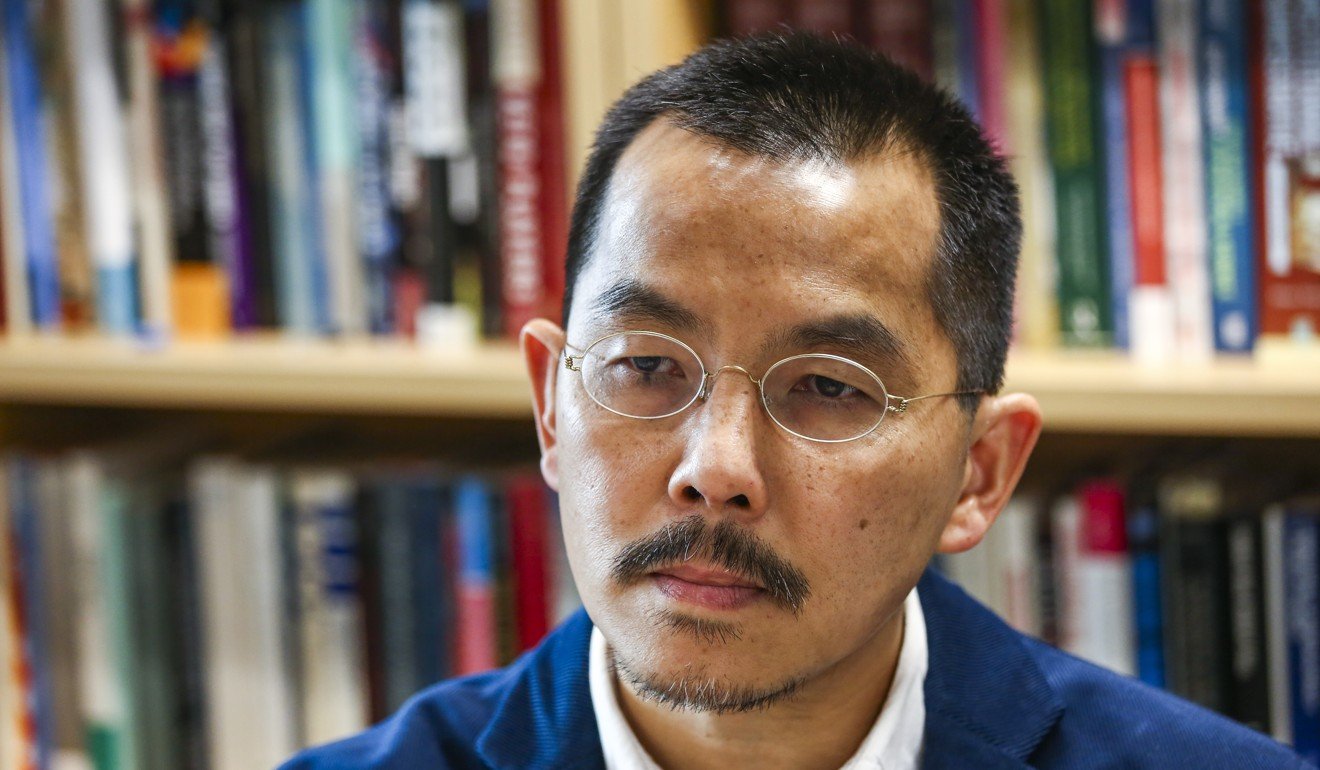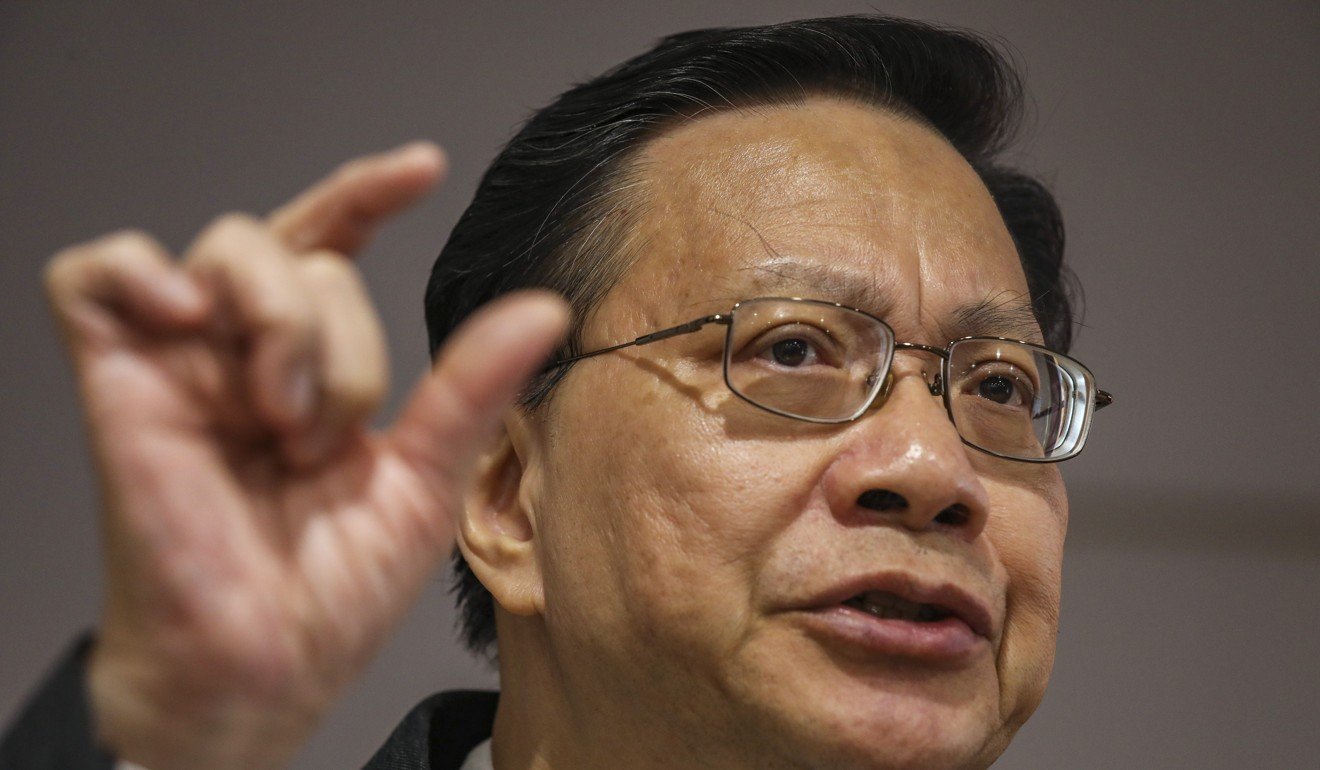
Public policy think tank SynergyNet to close after 17 years from lack of funds and unfavourable environment in Hong Kong
- Founded by former housing minister Anthony Cheung in 2002, the think tank has ceased operations since September
- The organisation has struggled to finance itself and blames a lack of receptiveness to think tanks on the part of policymakers
A think tank founded 17 years ago by Hong Kong’s former housing minister is to cease operation, citing a lack of financial resources and frustration with the government’s disregard for public policy studies.
Founded by Anthony Cheung Bing-leung and a group of moderate academics in 2002, SynergyNet positioned itself as an independent policy think tank that promoted studies on public policies. A decade ago it had about 50 members though its current membership is 24.
It was one of the few think tanks in the city to conduct public policy studies but its research director, Ray Yep Kin-man, lamented there was limited room for development.
Lau Siu-kai, the former head of the now-defunct government think tank Central Policy Unit, said there was a dearth of “political ecology” for the healthy development of think tanks in Hong Kong, such as financial support from the business sector and non-profit foundations and a revolving door of think tank employees.
The executive committee of SynergyNet decided in September to pull the plug and filed an application to the Companies Registry to be deregistered. It will formally close down at the end of this year.

SynergyNet organised seminars on various public policy areas and has published annual reports on Hong Kong’s governance since 2003. It has also released reports on topics such as reform of district administration or health care reform.
Some members of the think tank went on to become political appointees. Kitty Poon Kit, who served as undersecretary for the environment from 2008 to 2012, was a former member of SynergyNet’s executive committee.
Allen Fung Ying-lun, serving political assistant to the secretary for development, and Paul Chan Chi-yuen, who was political assistant to the secretary for food and health from 2008 to 2012, also once served as interns at the think tank.
Top Beijing think tank urges HK, make better use of ‘one country’ principle
But Yep said they had been struggling to raise the annual operating expenses of HK$500,000.
“We don’t have donors who offer hefty amounts of cash. Each executive committee member has to fork out tens of thousands of dollars from their own pockets to finance the operation,” he said.
He said SynergyNet’s financial difficulties were exacerbated by its refusal to conduct consultancy studies commissioned by the government or political parties because they wanted to maintain an independent status.
“When [Chief Executive] Carrie Lam Cheng Yuet-ngor was permanent secretary for home affairs in 2006, she invited us to conduct a study on district administration,” Yep said. “We declined because we wouldn’t be able to set the agenda and direction of the study.
“There is limited room for serious discussion on public policy in Hong Kong,” he said. “The government, political parties, media and the community do not pay enough respect to the work of think tanks.”
Bumper pay packets up for grabs at Carrie Lam’s new think tank
Cheung said it was regrettable the think tank he founded was closing down.
“Think tanks in Hong Kong face an unfavourable environment because there is no ruling party,” he said.
“In the US, many think tanks are affiliated to political parties and their proposals can be put into practice when the relevant parties come to power.”

Lau said think tanks were described by some academics in the United States as “the fifth estate” but noted those in Hong Kong were underdeveloped.
“Hong Kong adopts the ‘executive-led’ system of government and the policymaking process is dominated by officials,” he said. “Most officials are not in favour of major changes to existing policies and are not keen on public policy studies, which usually call for policy innovations.”
Think tanks in Hong Kong have a vital role to play, says Civic Exchange chief
Andrew Fung Ho-keung, chief executive of the Hong Kong Policy Research Institute, another think tank, complained the government did not often give any feedback to submitted studies.
But he noted authorities had been attaching more importance to studies since Carrie Lam became chief executive in 2017.
Fung said senior officials admitted the “land sharing” scheme proposed by the chief executive in her policy address in October last year, under which private developers would be invited to hand part of their farmland to the government in exchange for higher density and quicker development approval, had drawn on a proposal put forward by the institute in May last year.

